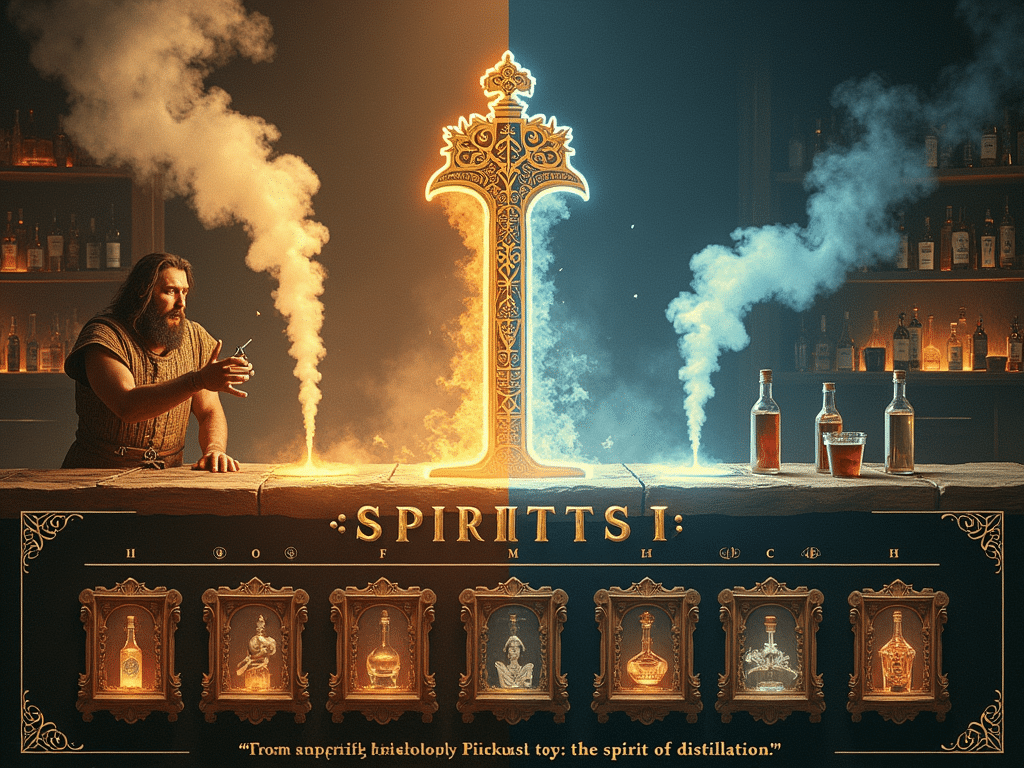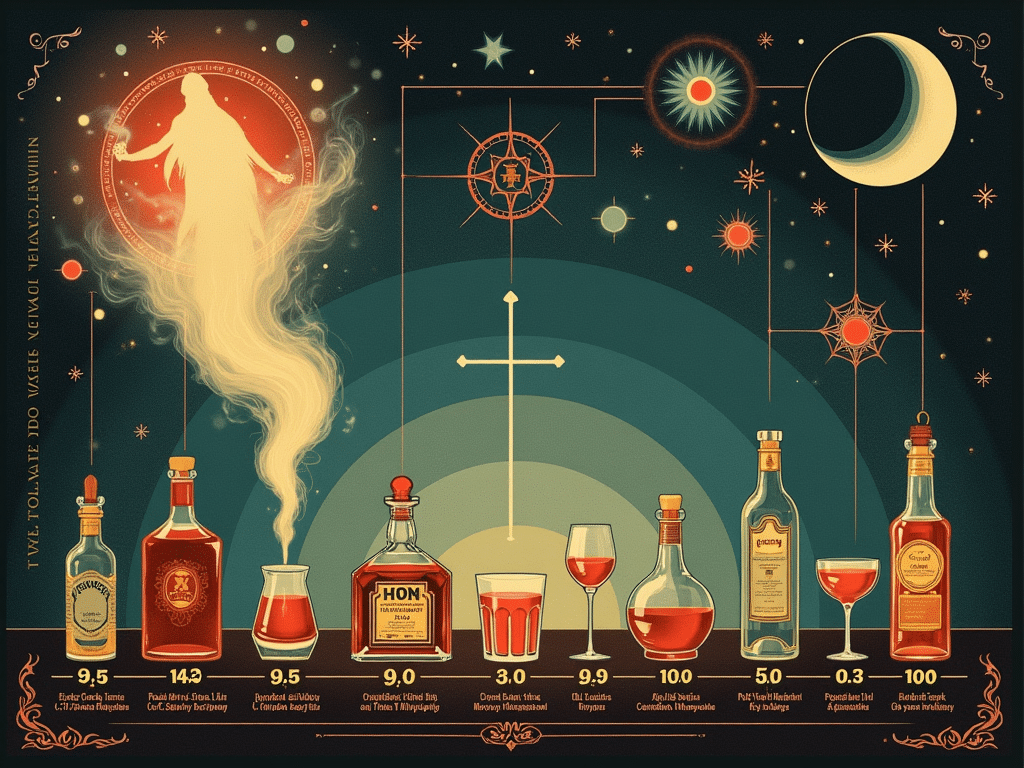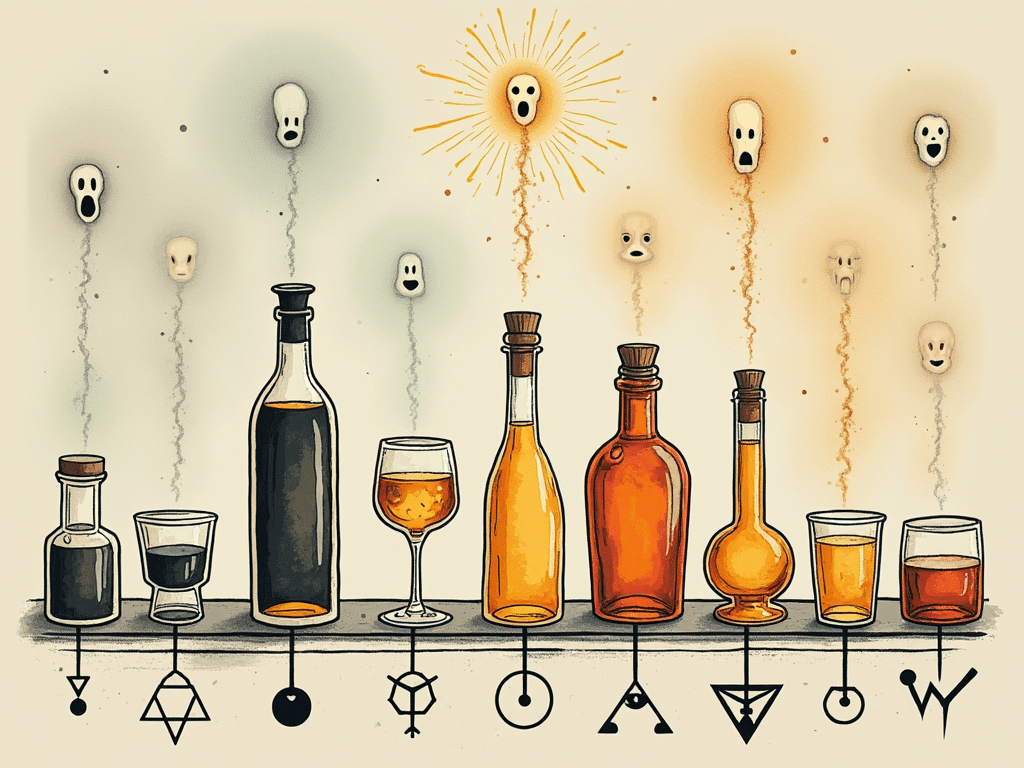Ever wondered why liquor is often referred to as “spirits“? It’s a term that has a rich history and some intriguing connotations. From its origins in ancient languages to its modern-day usage, the word “spirits” has evolved but still carries a sense of mystique and depth. Let’s break it down!
| Key Takeaways | Meaning |
|---|---|
| Definition | Distilled alcoholic beverages |
| Origin | Derived from Latin and Arabic terms |
| Common Usage | Refers to strong liquors like whiskey, vodka, etc. |
| Cultural Impact | Used in various cultures and contexts |

The Etymology of “Spirit”
To understand why liquor is called spirits, we need to look at its roots. The term comes from the Latin word spiritus, which means “breath” or “soul.” Here’s how it connects:
- Latin Influence: In ancient times, spiritus was used to describe the essence or life force of something. When it came to alcohol, it referred to the essence extracted during distillation.
- Arabic Connection: The Arabic word al-ghawl also means spirit and relates to intoxicating substances. This shows how different cultures have linked alcohol with the concept of spirit.
So, when you sip on a whiskey or a gin, you’re not just drinking; you’re engaging with a term that has deep historical roots!
Also read: Boujee
Historical Context: From Medicine to Celebration
Historically, spirits were not just for partying; they had serious medicinal uses too. Here’s how their role evolved:
- Ancient Remedies: In medieval Europe, distilled spirits were often used for medicinal purposes. They were believed to have healing properties and were prescribed for various ailments.
- Transition to Recreation: Over time, as distillation techniques improved, people began enjoying spirits recreationally. They became associated with celebrations, gatherings, and social events.
I remember my first experience with spirits at a family gathering where my uncle shared stories about how whiskey was once considered a cure-all. It was fascinating to think about how something so enjoyable had such serious beginnings!
The Connection Between Distillation and Spirits

The process of distillation is crucial in understanding why liquor is called spirits. Here’s the breakdown:
- What Is Distillation?: It’s a method that separates alcohol from water and other components in fermented liquids. This process concentrates the alcohol, creating what we know as “spirits.”
- Extracting Essence: During distillation, the “spirit” of the liquid is extracted – the concentrated essence that gives spirits their unique flavors and effects.
This connection between distillation and the term “spirits” reflects how deeply intertwined the concepts of life force and alcohol have been throughout history.
Also read: Who’s on the Dollar Bill?
Why Are Distilled Alcohols Called Spirits?
So why do we still use the term spirits today? Here are a few reasons:
- Life-Giving Properties: Historically, distilled beverages were referred to as aqua vitae, meaning “water of life.” This idea persists in how we view strong liquors today.
- Spiritual Experience: Many cultures associate drinking spirits with spiritual experiences or connections. Whether it’s celebrating milestones or simply unwinding after a long day, there’s often an element of transcendence involved.
I’ve noticed that when people gather for celebrations, there’s this almost sacred vibe when they toast with their drinks. It’s like sharing a moment that transcends the everyday hustle.
Also read: Funny WiFi Names
Conclusion
So there you have it! The term “spirits” has a rich history that goes beyond just being another word for liquor. It reflects cultural practices, historical uses, and even spiritual connections people have with alcohol.
Next time you raise your glass or order your favorite cocktail, remember that you’re partaking in a tradition that spans centuries! Whether you’re sipping on whiskey or enjoying a fancy cocktail at a party, you’re engaging with something much deeper than just a drink.







